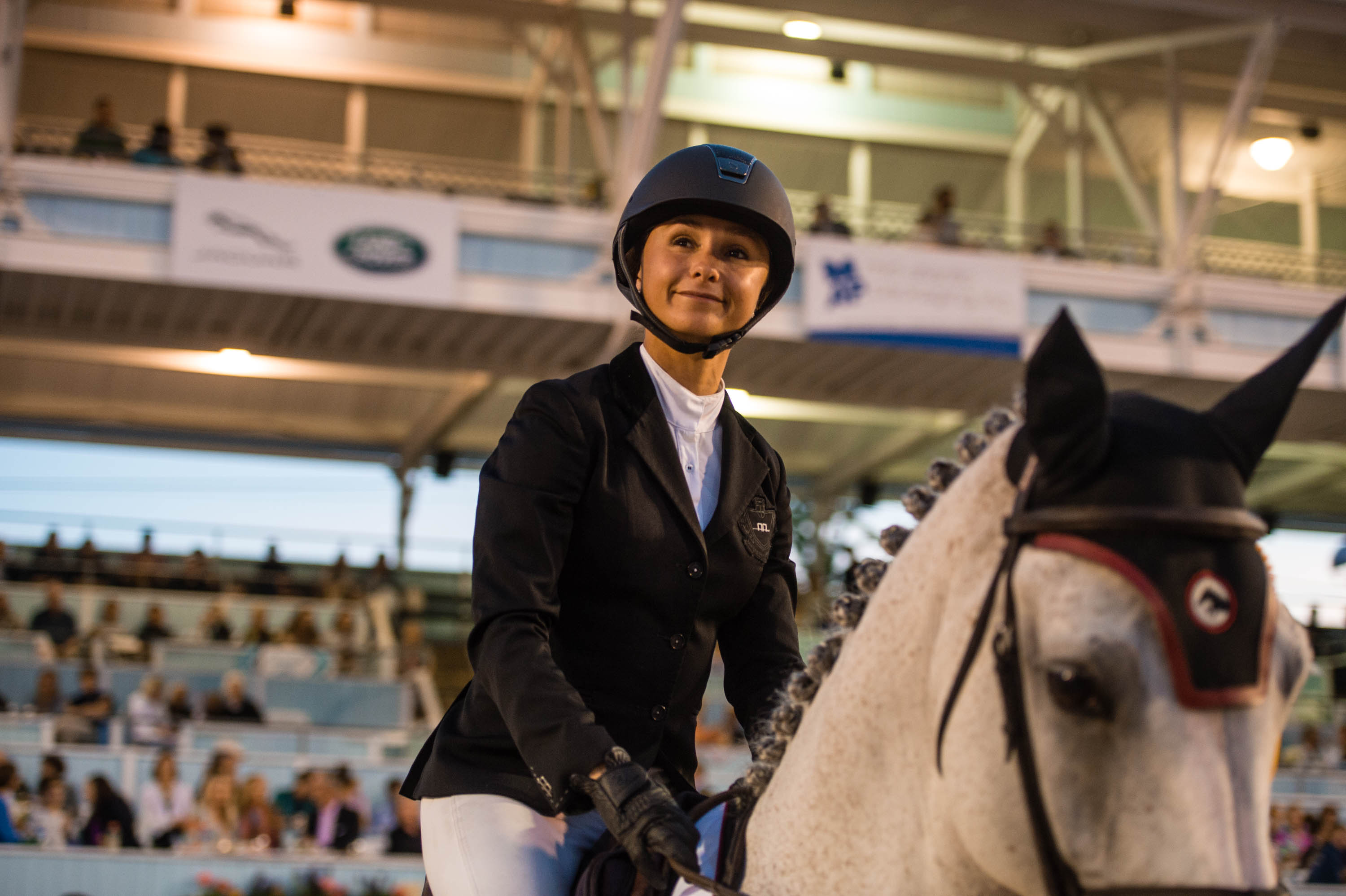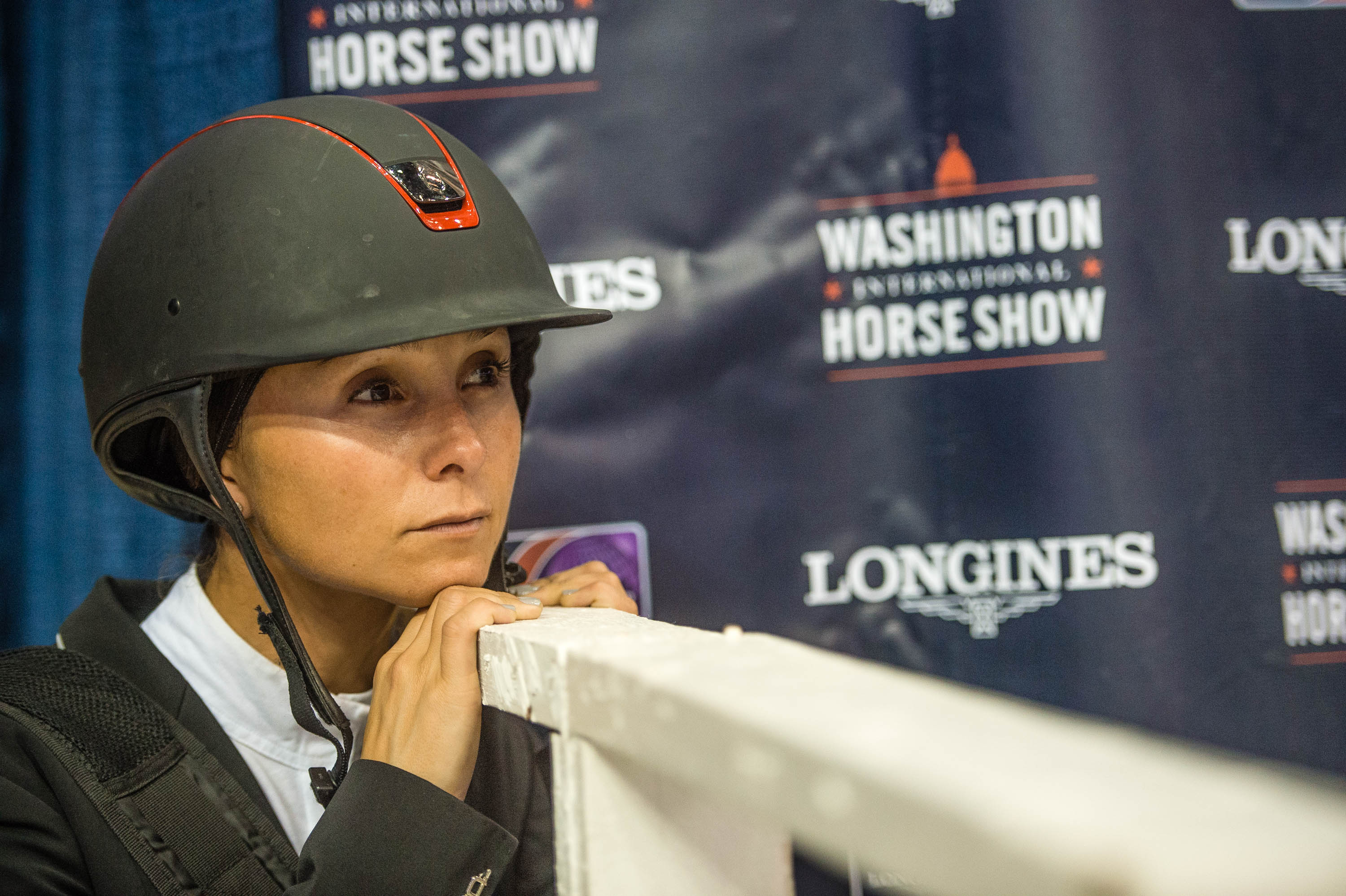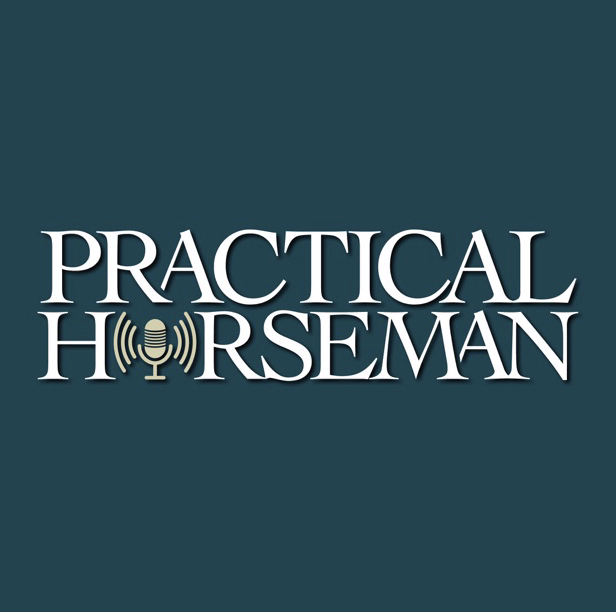
When most riders hear the name Georgina Bloomberg, they think of a successful, international-level rider who’s been at the top of her sport for well over a decade now. But what they might not know is she’s much more than just a show jumper. She’s a philanthropist and she’s heavily involved in animal welfare causes.
Thirteen years ago, she launched The Rider’s Closet, a non-profit organization that accepts riding apparel donations from around the U.S. and shares them free-of-charge with equine charities, scholastic riding programs, pony clubs, equestrian camp programs and individual riders in need. The Rider’s Closet is always looking for donations, so check out GeorginaBloomberg.com for more information.
Georgina’s also an activist, a passionate animal welfare ambassador. She’s on the board of directors for the United States Humane Society and was recently named Chair of Humane Generation New York, a chapter of the Humane Generation Philanthropy program operated by HSUS. The program seeks to cultivate the engagement of young leaders in New York and Los Angeles with humane work. Born in raised in New York City, that area has always been special to Georgina… and in fact, you’ve probably heard of her father, Michael Bloomberg, the former mayor of the city.
But back to Georgina as a rider… she began her career, like many top show jumpers, in the hunter and equitation divisions, picking up numerous accolades throughout her junior years. She won “Best Child Rider” titles at just about all the major East Coast shows before focusing on show jumping in 2001. That year, she went on to win the USET Talent Derby and later two gold medals at the FEI North American Young Riders’ Championships (team gold in 2002 and individual gold in 2003). In 2004, Georgina won the coveted USET Maxine Beard Award, which recognizes accomplishments by an up-and-coming show jumper.
Since then, Georgina’s been on fire, competing in multiple World Cup Finals (including this year’s Final in Gothenberg, Sweden), representing the U.S. on Nations Cup teams and picking up top placings at grand prix classes all over the world. This past year, she had a successful trip to Europe as part of the Global Champions League. Now, she’s back in the States on the U.S.-circuit with her top string of horses… in fact last weekend, she’s competed in the popular American Gold Cup at Old Salem Farm, in her home state of New York. (And was just a single, frustrating time fault away from making the jump-off with Quibelle, but still finished 8th in the class.) This prestigious competition includes one of the 14 Longines FEI World Cup Jumping North American League qualifiers. Riders in the league earn points to qualify for next spring’s World Cup Final in Las Vegas.
This summer, also at Old Salem Farm, Ashyn Flanagan, the VP of Communications for Straight Arrow (which you’ll recognize as the makers of Mane ‘n Tail products) conducted a guest interview with Georgina. During the interview, Georgina talks about her career, her charity work, her role models, training philosophies and competition strategies, how she handles disappointments in the sport, as well as what motivates her as a rider to get better each day.
You can listen to the full interview wherever you listen to podcasts, but in the meantime, below is a snippet of the conversation which spans from Georgina’s early riding years, to her involvement in numerous charities, some of her favorite horses, what qualities she values in a show jumper and also training and competition insights.

How did you first get started with riding?
I started riding when I was four years old. My mother had actually ridden in England when she was growing up. My older sister had just started riding and I wanted to do everything that she did and follow in her footsteps. So, I took a few lessons. I was actually terrified and didn’t want to continue with it but I was too stubborn to quit, so I made myself stick with it. When I first started competing at age six was when I really fell in love with it. I remember my first competition was actually here at Old Salem Farm. I came in six out of six and I hated the feeling of losing. I realized I wanted to go home and work hard at it and figure out how I could win.
What is your overall training philosophy?
I think the biggest thing that I try to bring into my training is knowing that you might not accomplish everything you set out for in one day… and not everything might go well in one day. There are so many factors and unknowns with horses, so sometimes you’re going to have a day when you’re a little off or a day when your horse is a little off. It’s very rare that you and your horse are “on it” on the same day. You have to really appreciate the days when it all comes together and enjoy those days.
There are some days when I get frustrated and I can’t get my horse to learn something… I think accepting defeat for that day was something that I really had to learn to deal with. It’s something that every rider has to figure out. You try your best and you want to accomplish something, but there are going to be days when you’re just not going to accomplish those goals. And sometimes it just takes more courage to say, ‘I’ll try again tomorrow.’
Do you have a favorite exercise or type of work that you think is important?
We do a lot of rails on the ground and a lot of cavaletti. I’ve always said that I wasn’t born with natural talent. When I was a kid I had a lot of trouble seeing distances and figuring it out and it’s taken me a long time to get to know each horse. I was never going to be a catch-rider. I needed to form a relationship with each pony and each horse that I rode. And that sometimes took a numbers of weeks or months or years… whatever it took. I really put the time into it. I was never a natural. I think that’s helped me stick with it later in life, because I’ve had to really figure out how to do it and not just rely on it coming naturally to me.
So, doing a lot of rails on the ground and cavaletti helps me stay in the groove. I don’t have to take a month off and then find a distance to a jump. I try to keep doing it as much as I can so that it comes as naturally as possible to me.
What qualities make a good show jumper?
I think the perfect balance of heart and brain. A horse with too much heart can get itself in trouble. And a horse with too much brain, but not enough heart, won’t take on some of the challenges that are presented to them and it might be a little bit fearful of some obstacles in front of them. So, I think you really have to have a balance.

What keeps you mentally focused?
It’s something that I’ve always taken very seriously. I think the mental side of every game or sport is very difficult. For each person it’s going to be different. I think it’s really up to you as an individual to figure out what it is that you need. I know there are some people who want to relax or be around friends and then there’s some people that need complete quiet time and to shut themselves off from the rest of the world. It’s up to you to figure out what you have to do and then go ahead and create that environment and not expect it to just fall into your lap.
For me, I actually ride better if I’m a little bit nervous. If I’m really focused and sort of overthinking the job at hand, that’s when I ride my best. If I’m too relaxed and not taking it seriously and focusing on other things, then you can tell in my riding. So it’s up to me to really create that environment where I can be 100% focused on what I’m supposed to do.
How did you handle it when things don’t go according to plan?
It’s incredibly important in our sport to learn to deal with failure and losing and the bad days, the bad weeks, the bad months, the bad years. It’s going to happen for everybody. There isn’t a top rider out there who hasn’t had more classes they’ve lost than they’ve won. That’s just part of the sport. You go through periods where you might have no luck. You might have injuries or you might not have a horse that’s able to compete at the level you want. I think it really goes to show who the top riders are when they can go through the bad times and come back from that.
No rider is always going to have a top horse and no rider is always going to be out there winning. It takes a lot of hard work and it takes learning to deal with the bad days and how to bounce back from that. There’s a balance with learning from your mistakes, but not getting discouraged. It’s something that I’ve had to learn. We video every round that I ride… and the bad ones? I make myself watch once, no matter how cringe-worthy it is, and then I delete it. Because that’s part of learning, but then putting behind you. The good rounds we keep, so that I can be reminded of the good times and enjoy them. If I win a class, I make sure that I celebrate and I give myself a pat on the back and I feel good about it. But I know how quickly that can all disappear, because the next time you go back in the ring, you’re probably not going to win again.
About the Practical Horseman Podcast

The Practical Horseman Podcast, which runs every other Friday, features conversations with respected riders, industry leaders and horse-care experts to inform, educate and inspire. It is co-hosted by Practical Horseman editors Sandy Oliynyk, Emily Daily and Jocelyn Pierce. Future podcasts are with hunter rider Sandy Ferrell, Olympic eventing legend Jim Wofford and top groom Liv Gude. Find the podcast at iTunes, Stitcher and Soundcloud.






